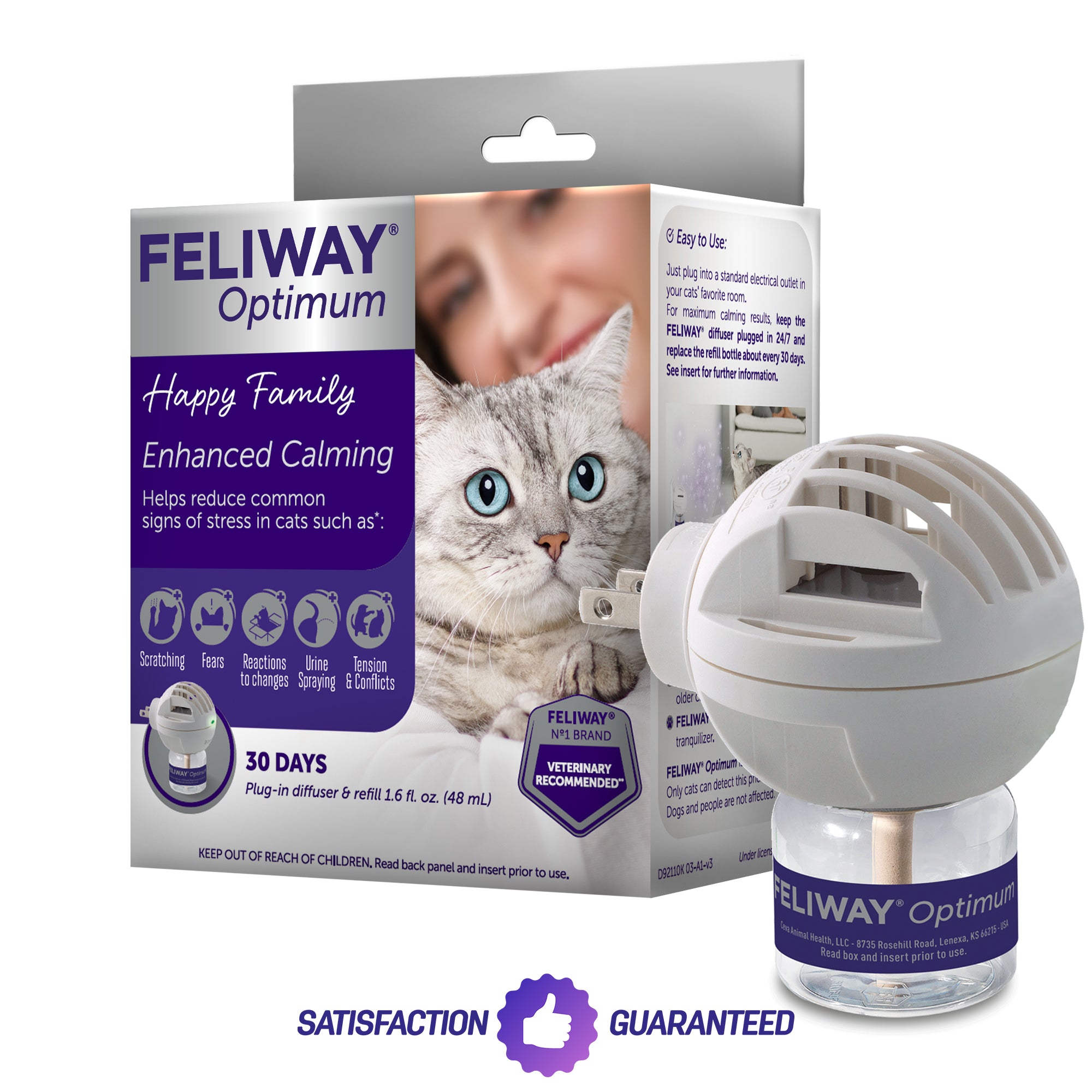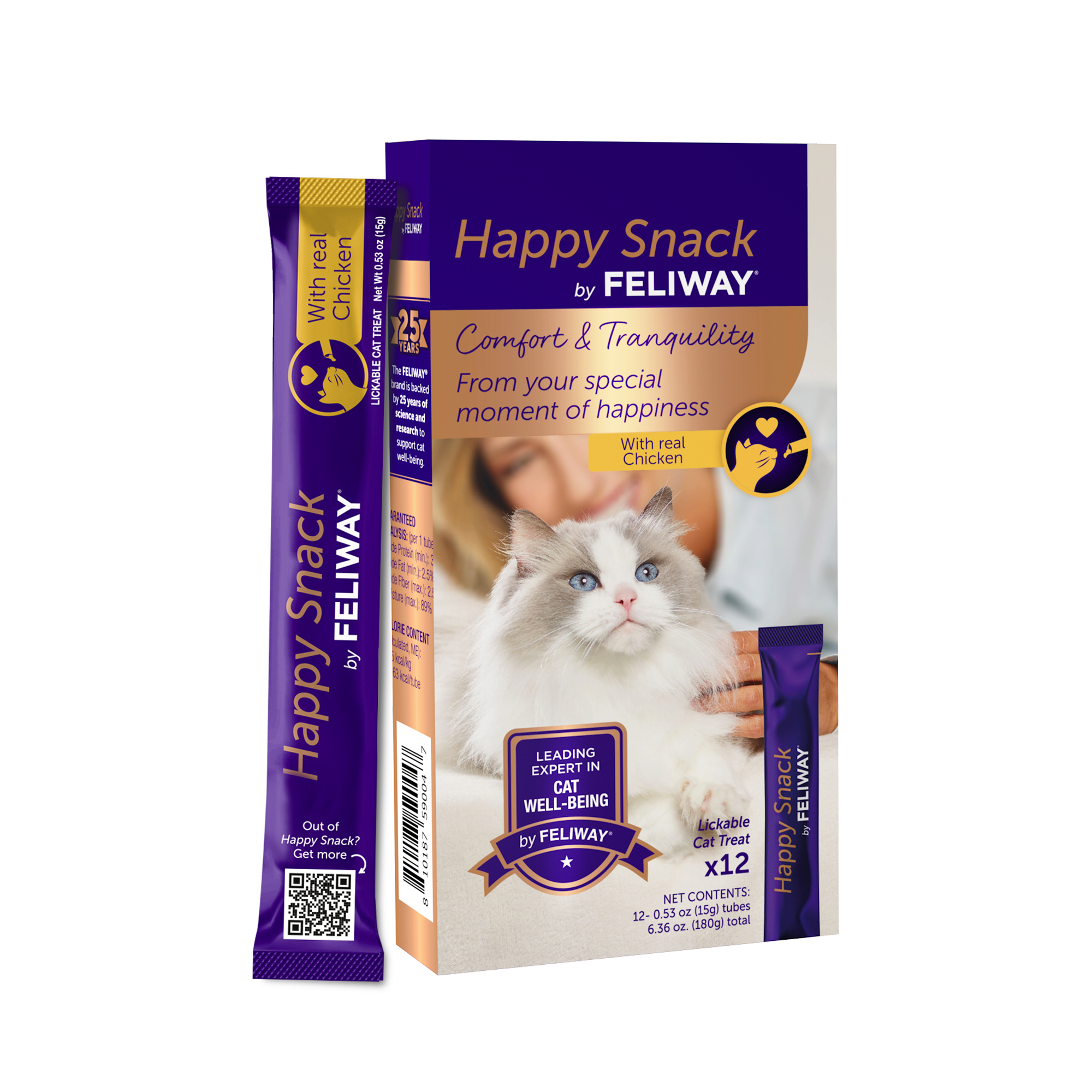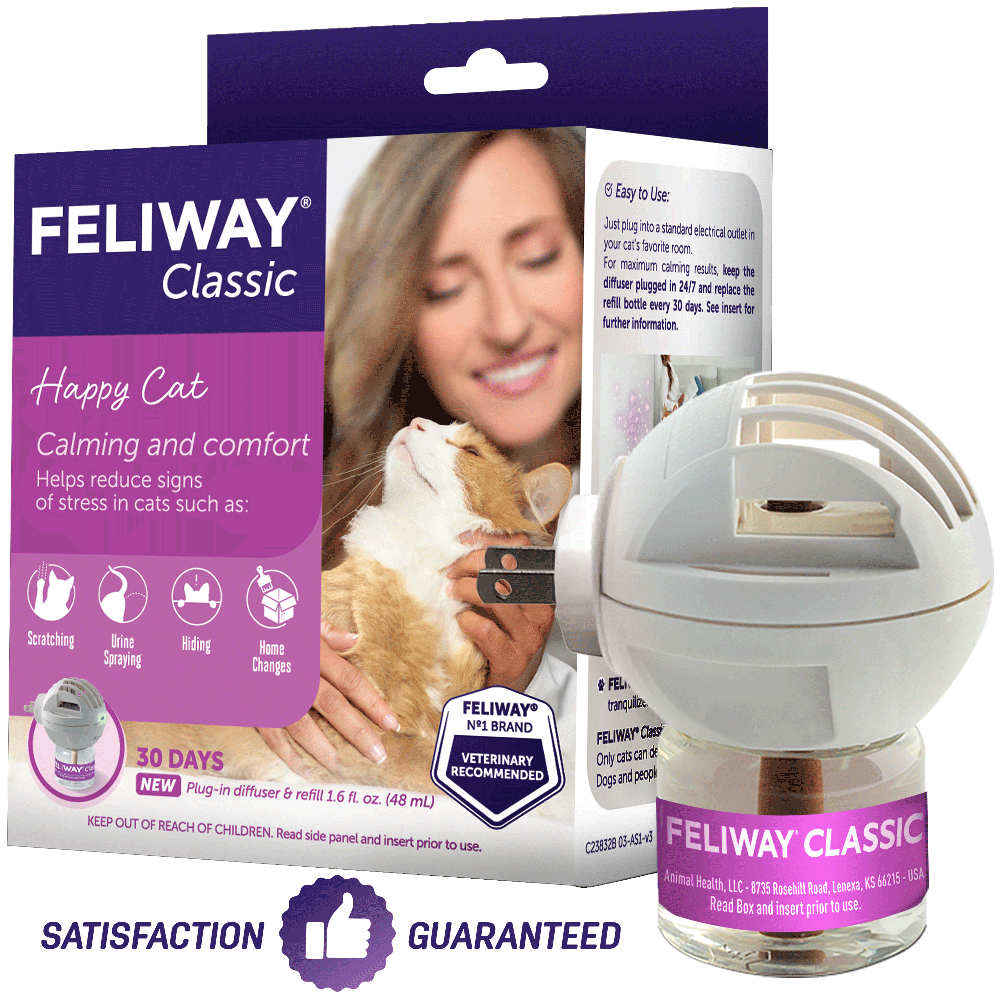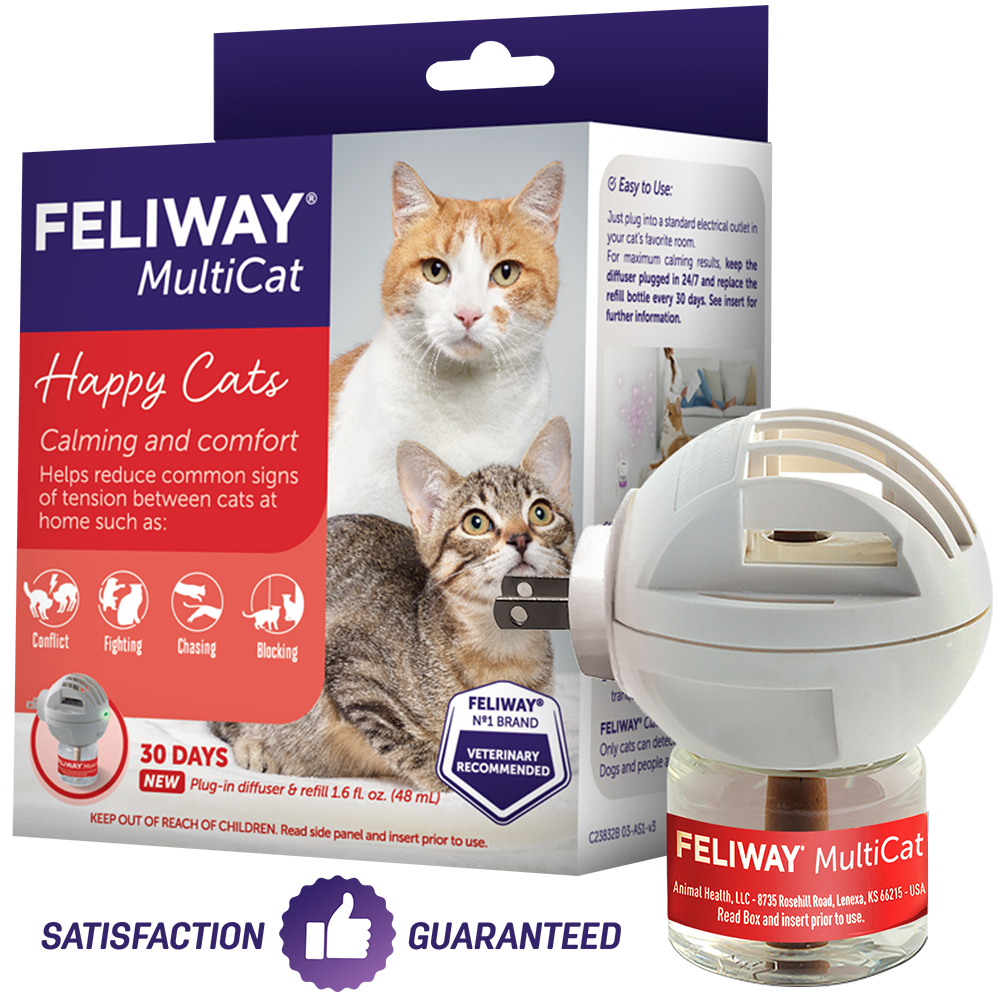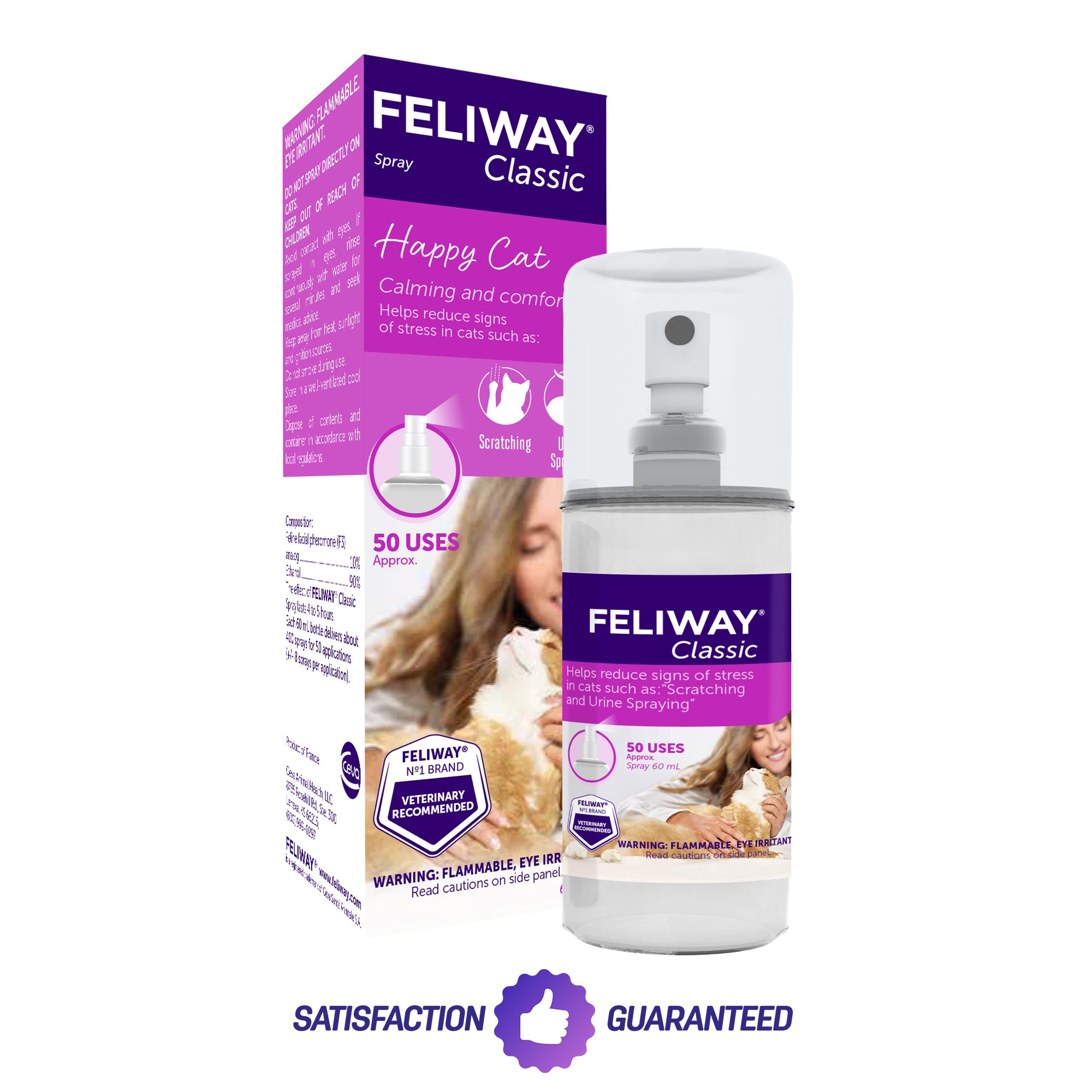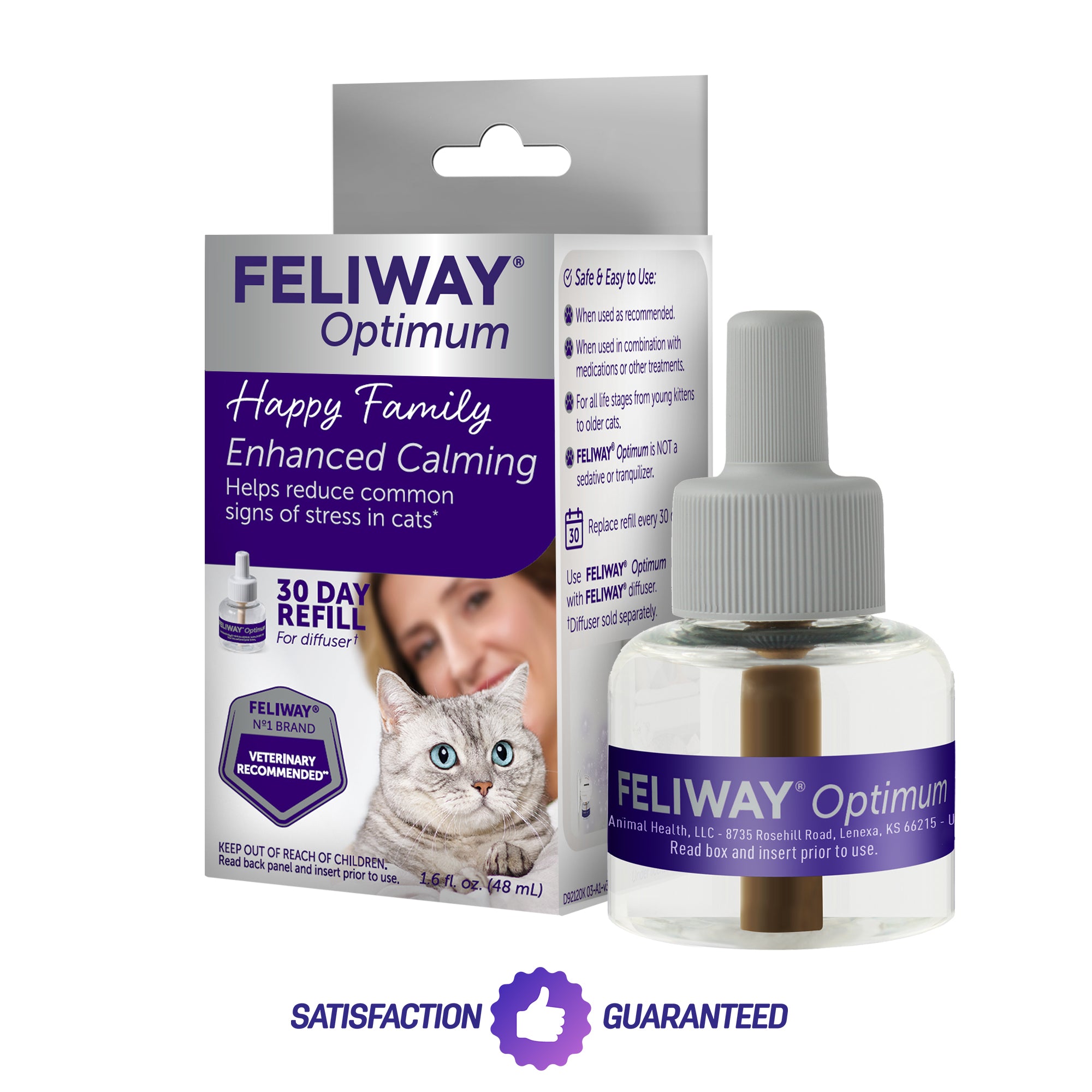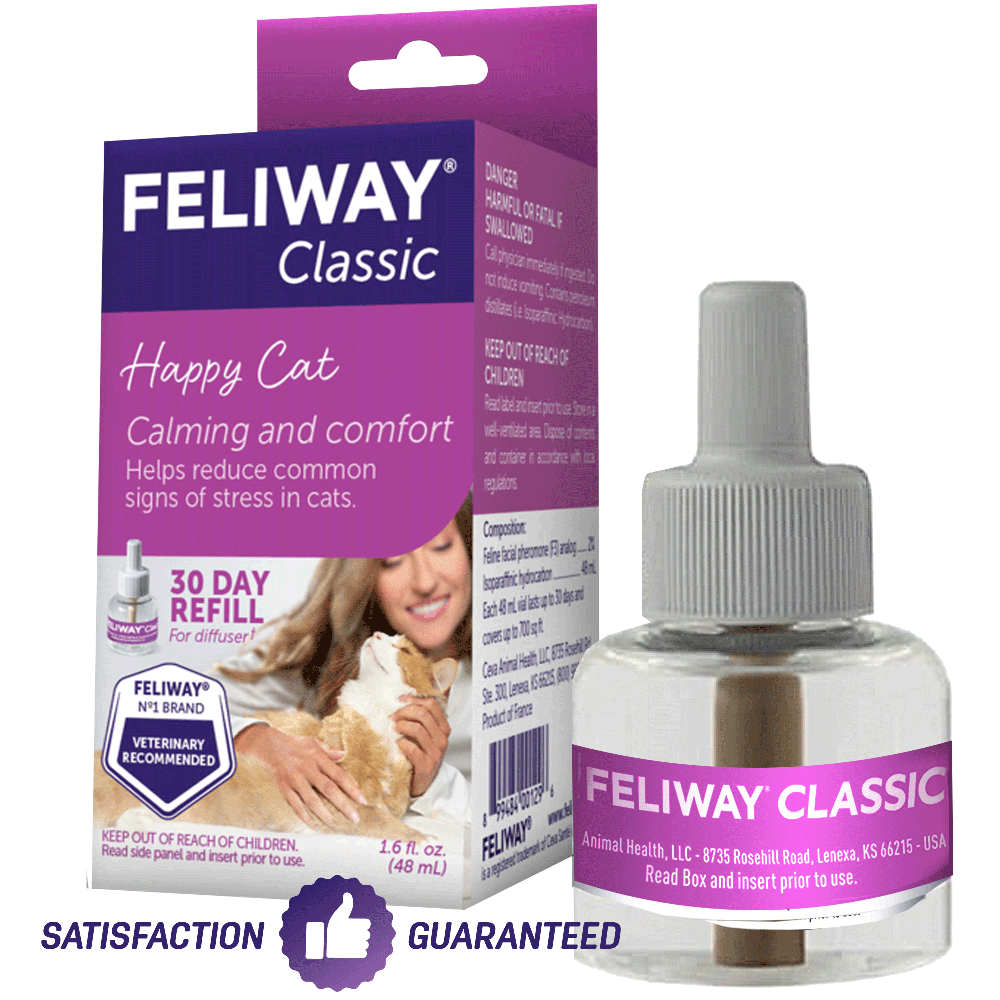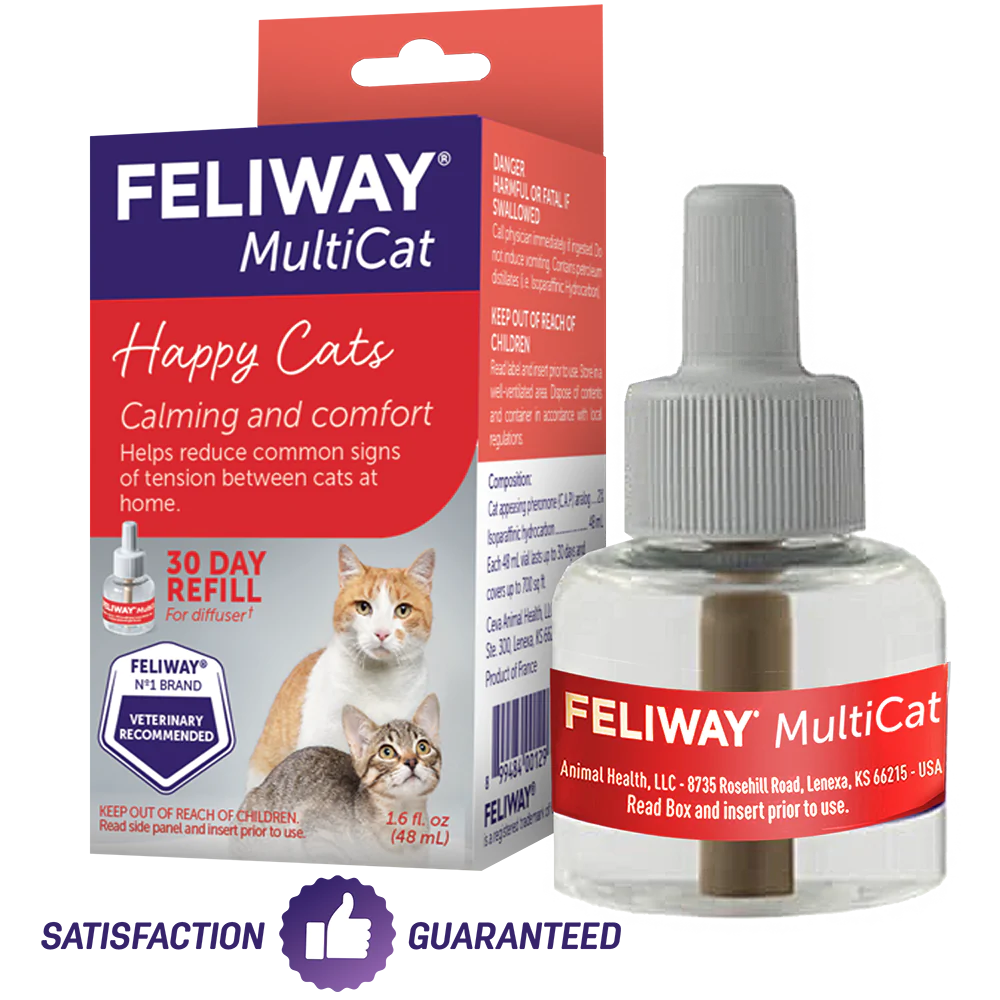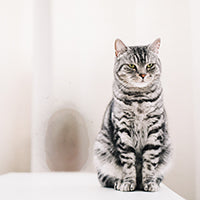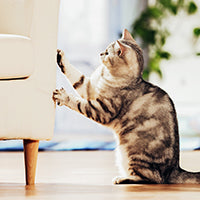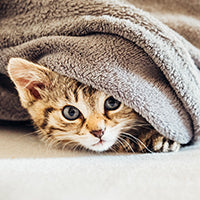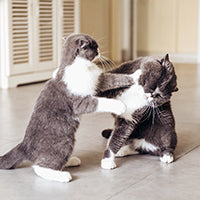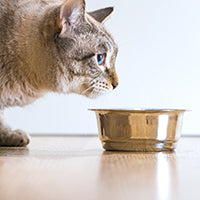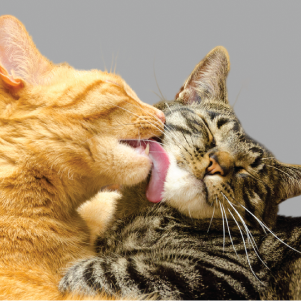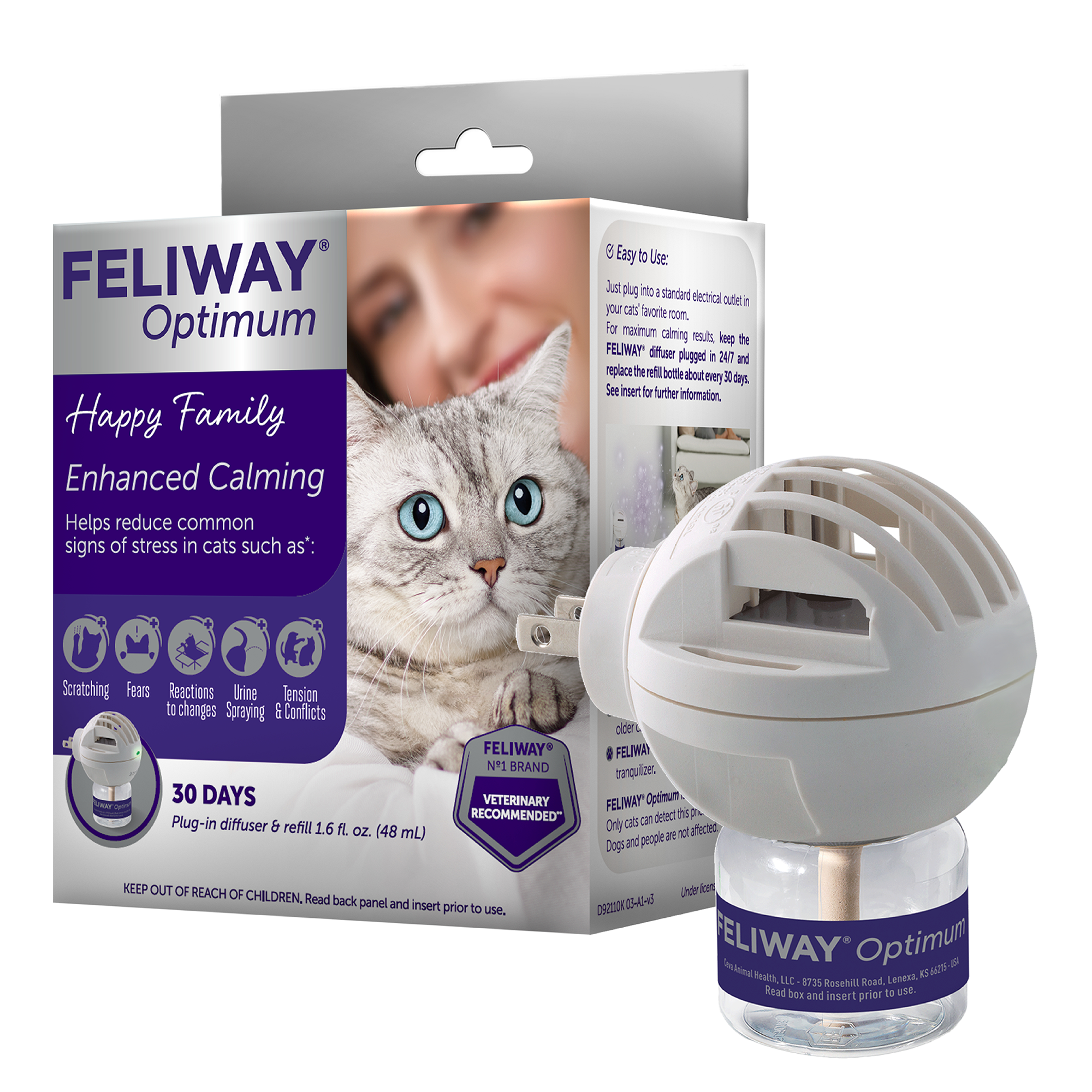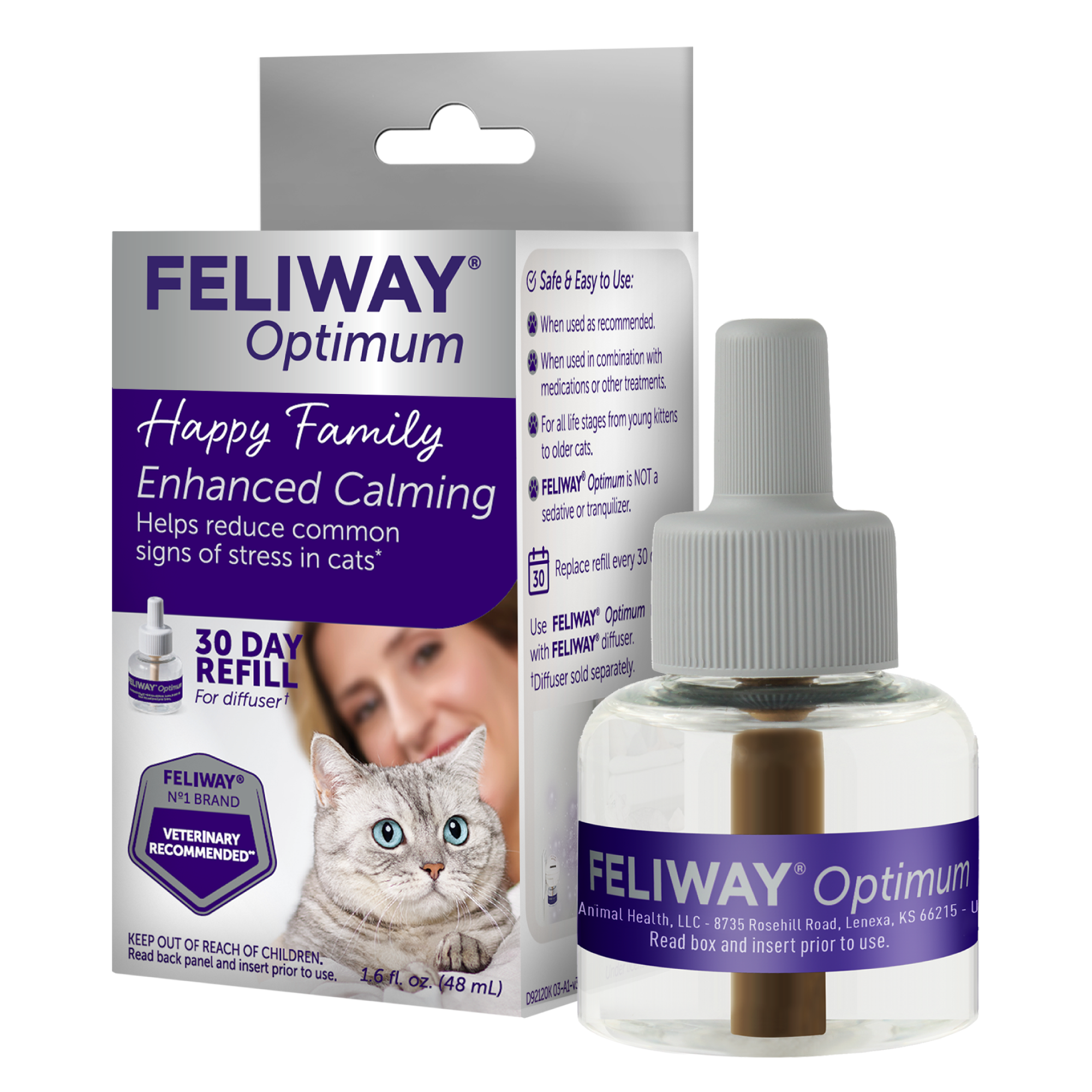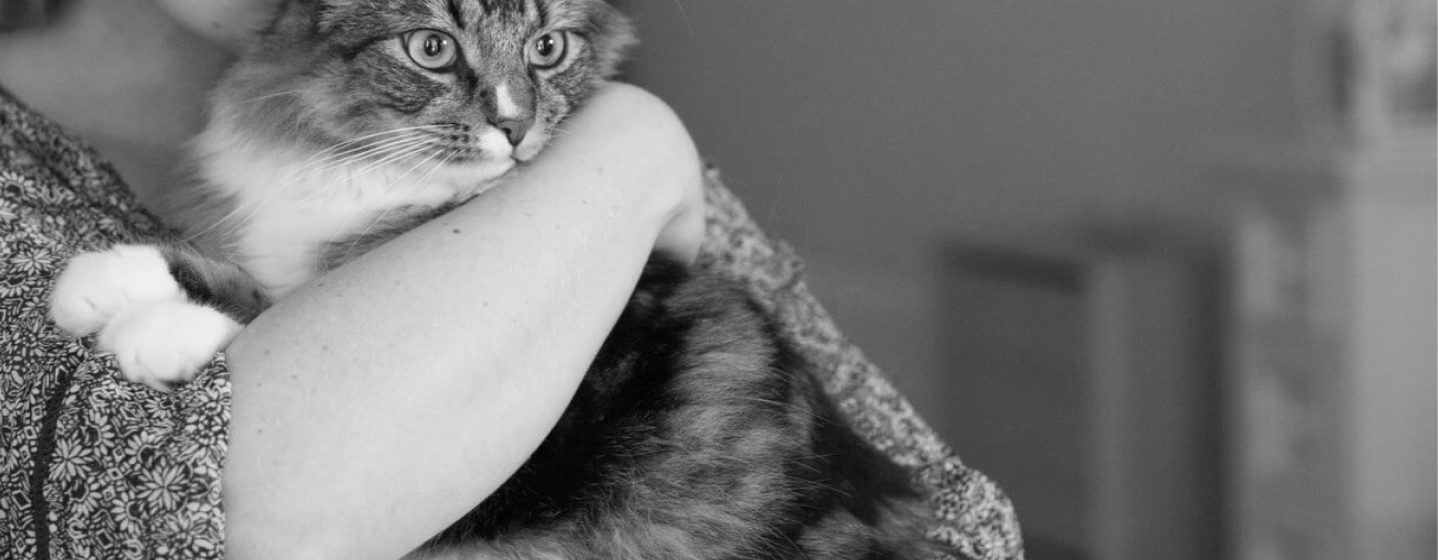MY CAT GROOMS A LOT
Why is your cat overgrooming?
-
Help your cat feel good with FELIWAY® Optimum
- FELIWAY® creates a calming environment by mimicking the natural calming signals that cats produce to create secure surroundings. It’s drug free, scent-free and can’t be detected by humans or other pets
- Releases “serenity messages”’ to create an environment where your cat feels safe and secure
- Results seen visibly within the first 7 days of use
- Use FELIWAY® Optimum continuously for at least 30 days
- Buy now to help create a calming environment
-
Check your cat's health
- Medical conditions, in particular skin diseases, can cause excessive grooming and hair loss. It's best to check with your vet first
-
Follow our “tips for happy cats”
- Play with your cat, even for a few minutes, every day
- Provide multiple toys, your cat will choose their favourit
We recommend:
-
As seen on TV
-
Recommended by vets
-
+ 1 million Facebook likes
-
+ 25 years of expertise
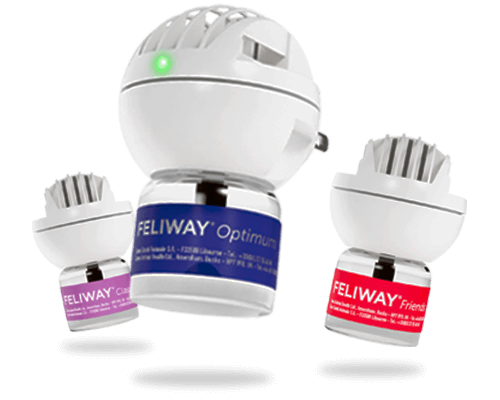
Which Feliway® Product is Right for My Cat?
Take The QuizWHY DO CATS OVER-GROOM?
Cats are natural self-groomers. In fact, they spend up to 25% of their lives grooming themselves.
Over-grooming can have either a medical or an emotional cause. If your cat has chronic skin issues, or if you recently changed your cat’s food, this excessive grooming may be an indication of underlying medical issues. We recommend a vet check to rule out medical causes.
Over-grooming might also be caused by emotional distress. Many things can lead to your cat feeling less secure in their enviornment, such as:
- Recent changes at home: moving, adding new furniture, remodeling, new baby in the family
- Another pet in the home or nearby: cats don’t like sharing resources like litter box, food bowls, etc…
- Recent changes in your routine: has your usual schedule changed leading you to be busier and less available?
Using FELIWAY® Optimum helps your cat feel secure and happy, and regaining their natural beauty and maintaining their well-being.
Frequently asked questions:
FREQUENTLY ASKED QUESTIONS - CAT OVERGROOMING
Find quick, expert-backed answers to the most common questions about FELIWAY, cat behavior, and how to create a stress-free environment for your feline friend.
WHY DO CATS OVER-GROOM?
Cats are natural self-groomers. In fact, they spend up to 25% of their lives grooming themselves.
Over-grooming can have either a medical or an emotional cause. If your cat has chronic skin issues, or if you recently changed your cat’s food, this excessive grooming may be an indication of underlying medical issues. We recommend a vet check to rule out medical causes.
Over-grooming might also be caused by emotional distress. Many things can lead to your cat feeling less secure in their environment, such as:
- Recent changes at home: moving, adding new furniture, remodeling, new baby in the family
- Another pet in the home or nearby: cats don’t like sharing resources like litter box, food bowls, etc…
- Recent changes in your routine: has your usual schedule changed leading you to be busier and less available?
- Using helps your cat feel secure and happy, and regaining their natural beauty and maintaining their well-being.
WHAT DOES OVERGROOMING IN CATS LOOK LIKE?
Overgrooming in cats can be visible as excessive licking, chewing, or pulling out fur from a particular part of the body. For instance, this may be most noticeable in a specific area, such as on the belly, legs, or on their side or flank. Overgrooming can lead to bald patches, damaged skin, or thinning hair, and you can often feel if a cat has been overgrooming as their fur will feel spiky, brought about by broken hairs.
Observing your cat’s grooming habits and looking for changes in their coat or skin condition is important for looking after their overall well-being. If you notice any changes in their grooming habits, consulting a veterinarian is essential to determine the cause and provide appropriate treatment. Where overgrooming is stress-related, FELIWAY® Optimum can be an effective solution, helping your cat to feel safe and secure.
HOW CAN I STOP MY CAT FROM OVERGROOMING?
To stop a cat from overgrooming, it’s important to first identify and address the underlying cause. Take your cat to a veterinarian so they can be checked for any medical reasons for overgrooming, such as parasites or skin discomfort. If your cat’s overgrooming is stress-related, this could be due to a change in their routine. Try to revert to a consistent routine as much as possible, for instance with a regular feeding schedule and playtime. Creating a calm and secure environment – assisted by FELIWAY® Optimum – can also help.
For more information on how to stop a cat from overgrooming, read our full guide here.
DO CATS OVERGROOM WHEN STRESSED?
Yes, cats can often overgroom when stressed, using grooming as a self-soothing behavior to cope with their anxiety. Causes for this stress can often include changes in the environment, such as new furniture, moving to a new home, the addition of a new pet or family member, or changes in the household routine. Identifying and reducing these stressors, providing a stable environment, and offering plenty of enrichment activities can all help alleviate overgrooming behavior.
This being said, parasites, skin conditions, and pain may all be more common reasons for cats to overgroom. It’s important to speak to a veterinarian to establish the underlying cause and to prescribe the most appropriate treatment.
IS OVERGROOMING A SIGN MY CAT IS SICK?
Overgrooming can be a common sign that a cat has a skin problem, a parasite, or is experiencing discomfort, but this is not necessarily always the cause of overgrooming. Other causes can include emotional distress brought on by changes in the home or in their routine or having another pet nearby. If you are concerned your cat is overgrooming, whether due to sickness or otherwise, it’s important to consult a veterinarian. A professional assessment can help identify any medical or emotional issues, allowing for appropriate treatment to address your cat’s specific needs.
